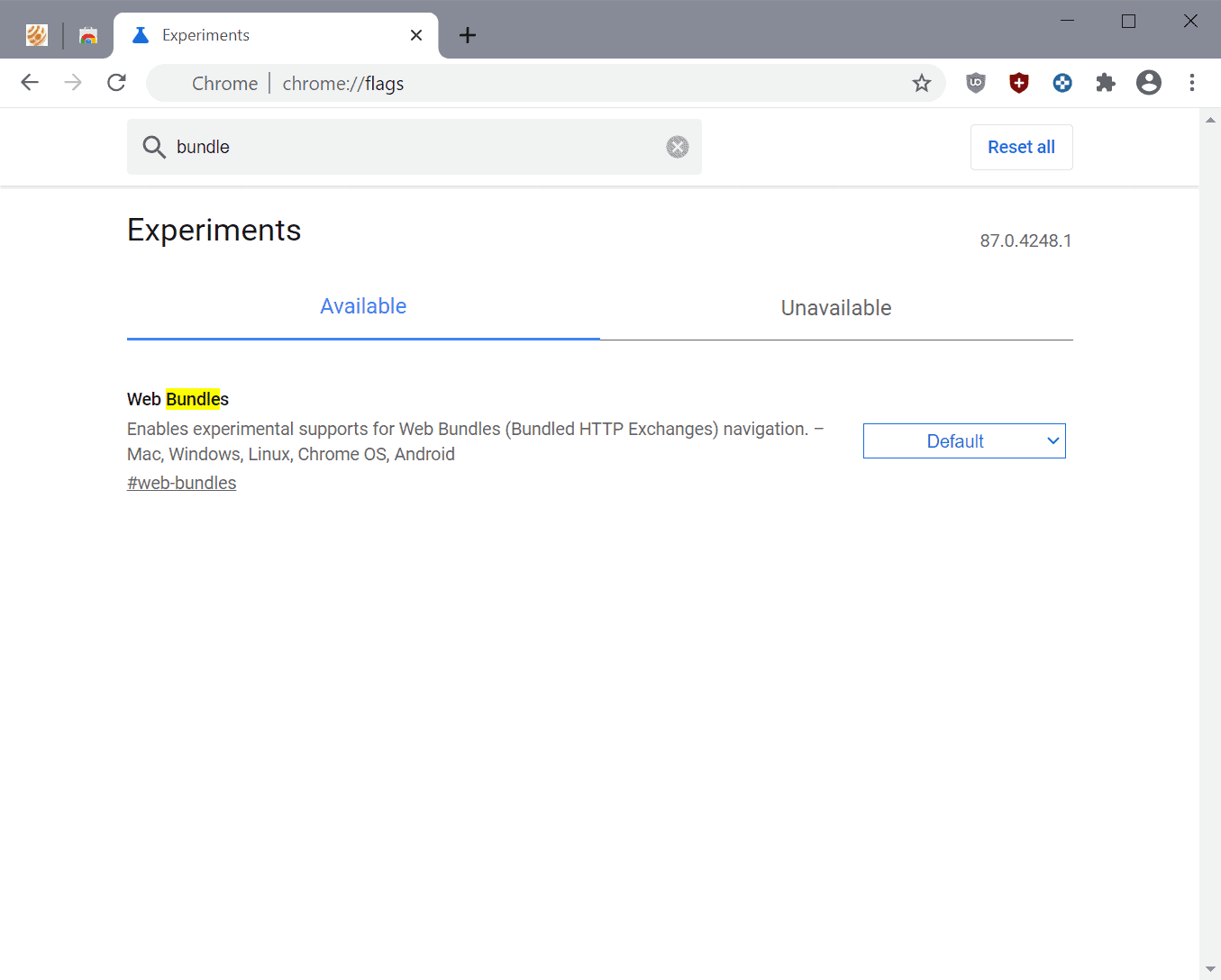Web Bundles is a new proposed standard by Google designed to change the Web fundamentally. The main idea behind the technology is that sites may bundle a full webpage into a single file.
Currently, when you open a webpage in any browser, content, e.g. images or scripts, gets loaded individually. The web browser parses the source of the webpage and loads the content based on the references that it finds in the code.
Google notes on the Web Bundles announcement page on its Web Dev website:
A Web Bundle is a file format for encapsulating one or more HTTP resources in a single file. It can include one or more HTML files, JavaScript files, images, or stylesheets.
Web Bundles are part of the company's Web Packaging proposal that also include Signed HTTP Exchanges and Loading. The technology offers several unique features and benefits according to Google that include that they load "near instantly when served locally", "enables executable JavaScript", or easier sharing of resources.
Not everyone agrees with Google's assessment and description of the new technologies. Privacy researcher Peter Snyder published an analysis on the Brave company blog that highlights the dangers of the new technology in regards to privacy, content blocking, and the Open Web in general.
He points out that the technology can be used to "change the Web from a hyperlinked collection of resources (that can be audited, selectively fetched, or even replaced), to opaque all-or-nothing “blobs” (like PDFs or SWFs)".
A main point of criticism is that Web Bundles allow sites to evade privacy and security tools, and that they make URLs less meaningful.
At root, the common cause of all these evasions is that WebBundles create a local namespace for resources, independent of what the rest of the world sees, and that this can cause all sorts of name confusion, undoing years of privacy-and-security-improving work by privacy activists and researchers.
Webmasters may use Web Bundles to randomize URLs, reuse URLs, and hiding dangerous URLs.
The core of the issue lies in the fact that content that is inside WebBundles may be different from content that is offered elsewhere. Sites could use random URLs for tracking and advertising scripts to make blocking harder or even impossible, and they could even go a step further by using the names of legitimate resources for advertising or invasive content.

Web Bundles are already integrated in Chromium and development versions of Google Chrome. The experimental feature is disabled for the time being but users may enable it on chrome://flags by searching for Web Bundles.
Snyder sees the benefits of Web Bundles but also the dangers if the standard is released in its current state. As a user, there is little that can be done in this regard other than to watch how this will all unfold in the future.
Now You: What is your take on this?
Thank you for being a Ghacks reader. The post Google proposed Web Bundles could threaten the Web as we know it appeared first on gHacks Technology News.
https://www.ghacks.net/wp-content/uploads/2020/08/web-bundles.png
from gHacks Technology News https://ift.tt/34JCOPt


No comments:
Post a Comment